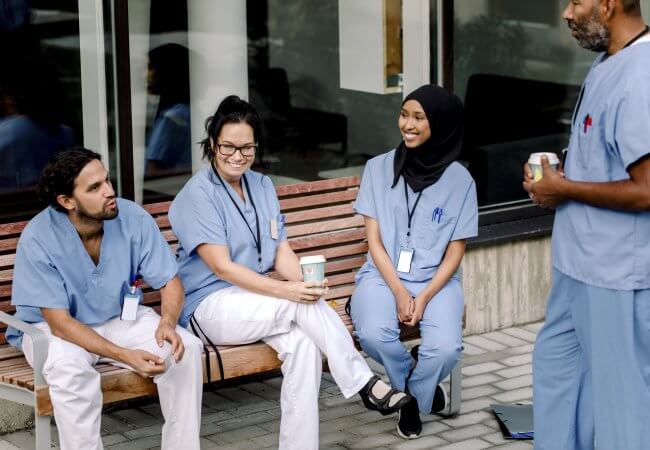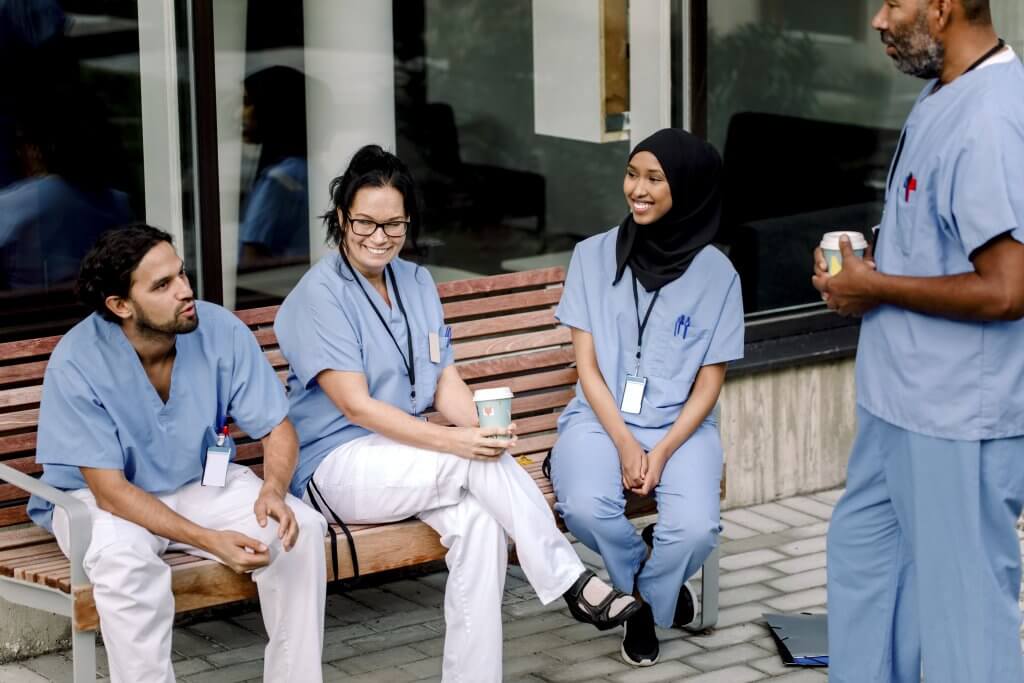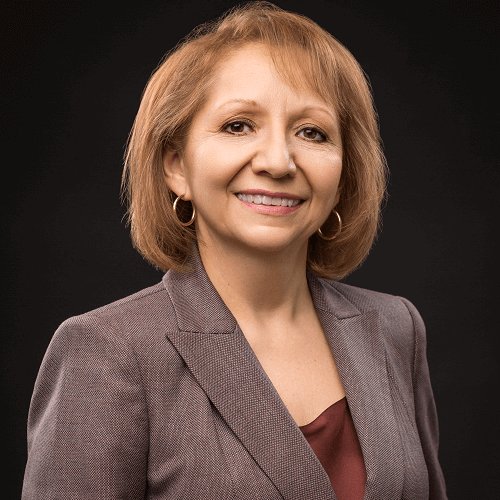
Mar 30, 2022
Training NPs for Community Care at Penn, Thanks to a $125 Million Gift from Leonard Lauder

From its very beginning in 2010, the Future of Nursing: Campaign for Action, an initiative of AARP Foundation, AARP and the Robert Wood Johnson Foundation, has been advocating for nurse practitioners as the key to transforming health and health care in this country. Since then, 11 states have increased consumers’ access to care by removing legal barriers that prevented nurse practitioners from providing care to the full extent of their education and training. As of March 2022, 84 million people living in 24 states and the District of Columbia have improved access to care with highly trained nurse practitioners who are able to provide full care.
Now, a recent development in the world of philanthropy is going to accelerate this progress. The University of Pennsylvania School of Nursing has received a $125 million donation from Leonard A. Lauder, Chairman Emeritus of The Estee Lauder Companies and an alumnus of the university, to create a first-of-its-kind, tuition-free program that will prepare a diverse cadre of expert nurse practitioners to provide primary care to individuals and families in underserved communities across the U.S. It is the largest gift ever to an American nursing school.
A pilot program at the Centers for Medicare and Medicaid Services demonstrated the value – to communities, to health care and health equity, to taxpayers and consumers – of investing in nurse practitioners to deliver primary care. Medicare has been funding the clinical training of physicians through hospital residency programs for decades; in 2012, it began testing the feasibility of doing the same thing for nurses, but with a focus on community health settings. The results were promising. They showed that nurse practitioners could significantly improve access to primary care if there was funding to train enough of them.
Lauder recently spoke with Penn Today about his gift and the program. “If—together—we can support these dedicated nursing professionals and remove the potential barriers they face in advancing their careers, we can make an enormous difference. I truly believe this program can be a model for others around the country. One of the core goals of this initiative is to inspire other meaningful partnerships between the philanthropic and health education sectors.” Asked why he chose nursing, of all the health care professions, he replied, “My support for nurse practitioners comes from a deep respect for what they do.” He noted their broad skills and training and how nurse practitioners are also “able to take on key leadership roles, from managing and operating community clinics to leading interdisciplinary teams within health care systems.”
The Leonard A. Lauder Community Care Nurse Practitioner Program at Penn Nursing has been designed to scale up, correct course as needed, and meet its ambitious goals. Beginning in 2022, the program will engage with two community partner sites, and will select a total of 10 Leonard A. Lauder Community Care Nurse Practitioner Fellows from admitted full-time students. In 2023, the number of Fellows will increase to 20 and so on until it reaches its annual target enrollment of 40, into perpetuity, and a total of 10 participating community partner sites. The school has already opened its search for a faculty director and an executive director for the program.
To be selected, fellows must show a demonstrated commitment to working in underserved neighborhoods, where they are needed most, and to promoting health equity. They will enroll full-time in a two-year, rigorous Primary Care Nurse Practitioner Program at Penn Nursing and complete at least 50 percent of their clinical education at community partner sites in the greater Philadelphia area that provide direct patient care. And every Fellow will be expected to commit to practice or service in an underserved community for two years after graduation. The program will cover tuition and fees to all who are selected, plus a stipend for students with greater financial need.

Antonia M. Villarruel, PhD, RN, FAAN is a professor and the Margaret Bond Simon Dean of Nursing at Penn, as well as a member of the Campaign’s strategic advisory committee. She said, “[t]he synergy between Penn Nursing and the program will improve the health of underserved patients and families, by uniquely preparing primary care nurse practitioners, who will work with them in their communities. We are deeply grateful to Mr. Lauder for recognizing and investing in this critical need.”
With its plan to dispatch “expertly educated nurse practitioners to work in underserved urban and rural communities,” the program is explicitly designed to tackle health equity in community partner sites and more broadly. “Now more than ever, the country needs greater and more equitable access to quality primary care—and highly-skilled nurse practitioners are the key to making that happen,” explained Lauder.
You can learn more about the Campaign’s efforts to expand consumers’ access to care at this link: /issue/improving-access-to-care/.
